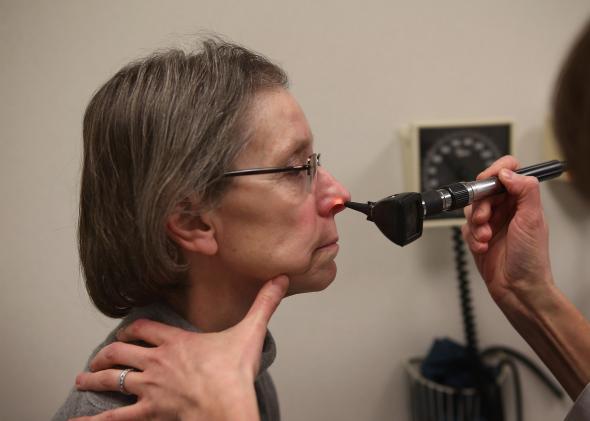In his 1962 book, Capitalism and Freedom, Milton Friedman described the American Medical Association as “the strongest trade union in America.” That wasn’t meant as a compliment. What he meant was that the lobby shop for doctors had done an amazingly good job of limiting competition, raising prices, and redistributing wealth upwards. Unfortunately, when I wrote yesterday that doctors who are sad that Obamacare doesn’t give them enough subsidies should be ignored, and that instead we should be finding ways to curtail doctors’ pay by dismantling supply restrictions, a lot of conservatives freaked out.
For example, here’s Breitbart.com’s Ben Shapiro offering me some questionable medical advice:
And here’s John Podhoretz of Commentary, The Weekly Standard, and the New York Post staying a bit more polite:
Others were less circumspect:
So let’s get clear on what the issues are here.
Are doctors smart, hard-working people who’ve obtained extensive and expensive educations? Yes.
But here’s what else doctors are. Doctors practice a profession that benefits from massive government subsidies—not just direct subsidies but indirect ones like the tax subsidy for large group health insurance. They also work in a heavily regulated industry. It’s regulated for good reason—obviously if you’re going to have public health regulations anywhere, you’re going to have it in the medical industry. But when you have this tangle of subsidies and regulations, then your income becomes a legitimate matter of public concern.
And here are the facts:
- U.S. doctors earn more than doctors in other rich countries and yet we have fewer of them per capita.
- We have so few doctors not because the hard work, malpractice insurance, and student loans keep people out of the profession, but because of regulatory barriers to entry that have prevented the supply of new MDs from growing with the population.
- Empirical evidence suggests that in some contexts nurse-practitioners can treat patients just as well as doctors, but California, Texas, Florida, New York, Illinois, Georgia, and other large states make this illegal.
If medical doctors don’t want to work at the rates government-subsidized Affordable Care Act plans will pay them, that is of course their right. Nobody is obliged to take work if they think the pay is too stingy. But if we need to find more doctors to treat patients in need at affordable prices, then we should address that by dismantling supply restrictions. Let nurses do more. Let more doctors immigrate. Create more residencies.
